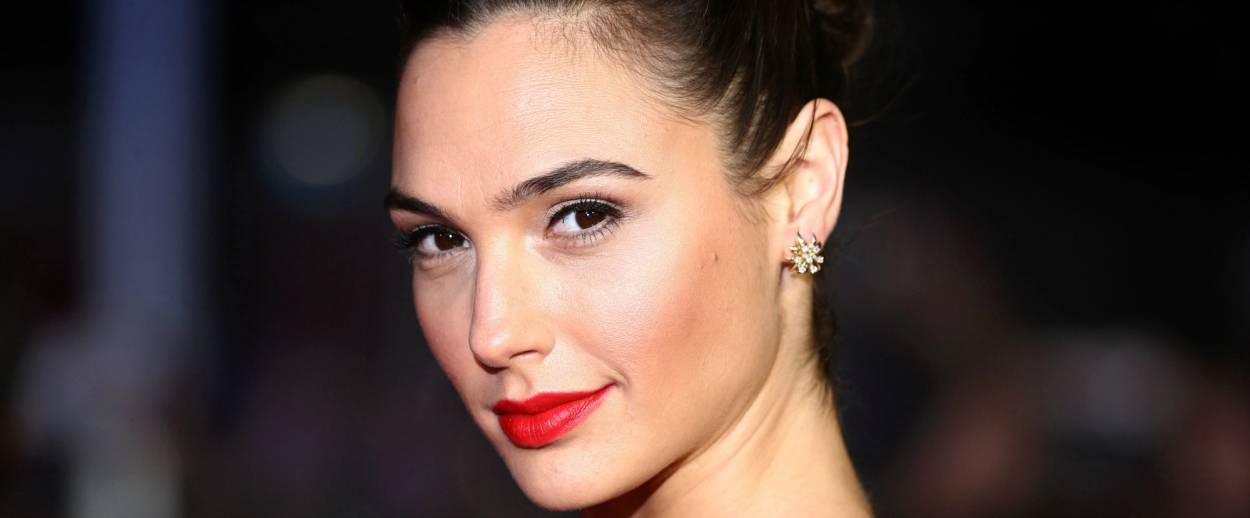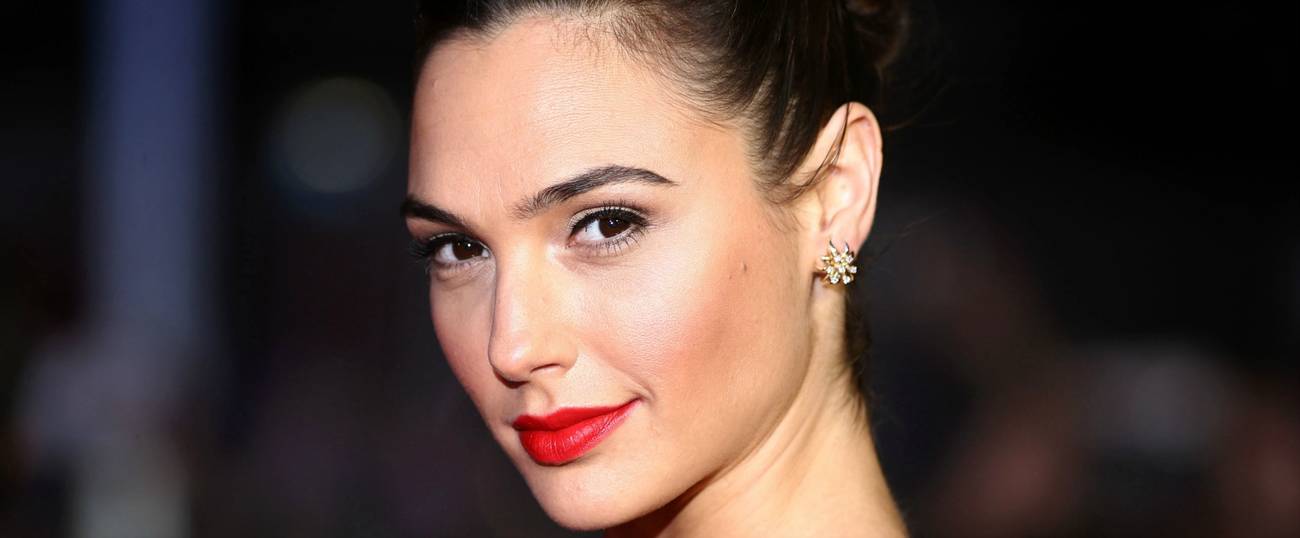Gal Gadot Don’t Need No Men
The Israeli star of the upcoming ‘Wonder Woman’ film is the first solo lead in the franchise’s history. And she loved working with the female director.




Wonder Woman is coming to the big screen once again, and this time, she’s got top billing.
Gal Gadot, the 31-year-old former Israeli army combat trainer and all-around Tablet sweetheart, will reprise her role as the Amazonian warrior-goddess—and her human alter ego, Diana Prince—in what looks poised to be the next big blockbuster superhero franchise.
For women in Hollywood—and movies about women made by Hollywood—the stakes could scarcely be higher. Wonder Woman, when it finally appears in theaters, won’t just be the first big-budget female-led superhero movie in the franchise’s 75 year history; it’ll also be the first ever directed by a woman—Patty Jenkins, best known for writing and directing the film Monster, for which Charlize Theron won an Academy Award. (Gadot’s was directed by Zack Snyder in Batman v Superman.)
In a recent interview in Entertainment Weekly, Gadot expounds on the momentousness of what, in a perfect world, would be the fairly pedestrian event of having a female director at the helm of a major studio action movie:
All my life I’ve been working with male directors which I’ve really enjoyed. And I’m lucky in that I’ve worked with men who have a lot of respect for women. But working with a woman is a different experience. It feels like the communication is different. We talk about emotions. With Patty, it’s a thing now, we communicate with our eyes. She doesn’t need to say a thing. If I’m hurt, she feels the pain. It’s a whole different connection that I have with her. She’s also brilliant, she’s bright, she’s fierce, she’s sharp. She knows exactly what she wants Wonder Woman to be.
Of course she does. Because, let’s face it, in a climate where only 9 percent of movies are directed by women, and in which female filmmakers held just 19 percent of all behind-the-scenes jobs for top-grossing movies in 2015 (including writers, producers, and editors, and cinematographers), any woman that manages to get hired to direct a huge-budget movie like this is literally a superhero.
But Gadot’s words ring especially true for another reason. It’s not that Hollywood doesn’t realize that there’s a money to be made in superhero movies geared towards women; it’s that, in general, they don’t trust unproven directors (i.e. women, who haven’t been offered such films in the first place) to make them. So the jobs go to male filmmakers (many, if not most, of whom seem never to have spoken to a living, breathing woman until well after high school; these are comic book/film nerds, after all). And they, however well-intentioned and shyly feminist, tend to reduce female characters to a certain characteristics, one at a time: She’s strong! She’s brainy! She’s hot! She’s vulnerable! She’s dorky!
Whereas women, being women, and having lived through the various phases of the female life cycle (does that make us sound like we’re insects? I’m not sure that’s not my intention), realize that a woman can be, and often is—wait for it—all those things at once! She can be strong and brave but still not unfailingly sure what to do in any given situation, or doofy and quirky but still in touch with her brain and sexuality. Women, you see, are just as complicated, just as fully human as men. But to see that on a movie screen in a megabudget movie? That’s truly a wonder. Said Gadot:
For a long time, people didn’t know how to approach the story. When Patty and I had our creative conversations about the character, we realized that Diana can still be a normal woman, one with very high values, but still a woman. She can be sensitive. She is smart and independent and emotional. She can be confused. She can lose her confidence. She can have confidence. She is everything. She has a human heart.
Previous: Woman Among Boys
Rachel Shukert is the author of the memoirs Have You No Shame? and Everything Is Going To Be Great,and the novel Starstruck. She is the creator of the Netflix show The Baby-Sitters Club, and a writer on such series as GLOW and Supergirl. Her Twitter feed is @rachelshukert.